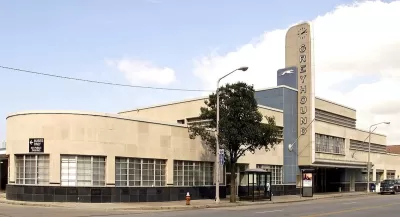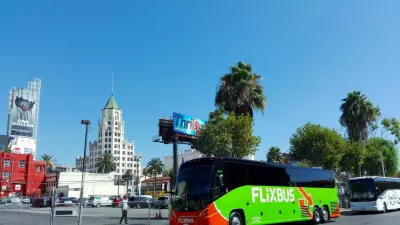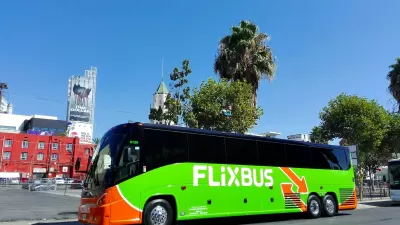The most affordable form of long-distance travel is being jeopardized as riders find themselves literally kicked to the curb.

An article in Daily Kos highlights the impact that recent closures of intercity bus terminals have on the riders who rely on buses. “Bus lines provide a real, tangible benefit to millions of people and it's by far the most cost-effective way to travel, as flights are expensive and American trains provide limited service.”
The contempt for buses was apparent during the pandemic, when the government rescued commercial airlines with over $60 billion. Yet buses, which make 600 million passenger trips per year and employ over 100,000 people, received $100 million—or just 16% of what the airlines were given.
Yet terminals around the country have been shuttered and bought up by hedge funds for redevelopment — “In 2022, Twenty Lake Holdings bought 33 Greyhound stations in prime locations for only $140 million” — leaving bus riders with no access to services like shelter, ticket counters, or bathrooms and forcing passengers to wait for buses on sidewalks and in parking lots. “Curbside bus service can clog up city streets with passengers and their luggage, snarl traffic, increase pollution, and frustrate local business owners.”
Meanwhile, the 37,000-square-foot former bus terminal in downtown Cleveland will be replaced with an apartment building and nightclub. According to real estate professor Stijn Van Nieuwerburgh, “it is clear what is happening here: an important piece of transit infrastructure is being sacrificed in the name of higher profits.”
FULL STORY: America's most affordable travel option is disappearing

Maui's Vacation Rental Debate Turns Ugly
Verbal attacks, misinformation campaigns and fistfights plague a high-stakes debate to convert thousands of vacation rentals into long-term housing.

Planetizen Federal Action Tracker
A weekly monitor of how Trump’s orders and actions are impacting planners and planning in America.

In Urban Planning, AI Prompting Could be the New Design Thinking
Creativity has long been key to great urban design. What if we see AI as our new creative partner?

King County Supportive Housing Program Offers Hope for Unhoused Residents
The county is taking a ‘Housing First’ approach that prioritizes getting people into housing, then offering wraparound supportive services.

Researchers Use AI to Get Clearer Picture of US Housing
Analysts are using artificial intelligence to supercharge their research by allowing them to comb through data faster. Though these AI tools can be error prone, they save time and housing researchers are optimistic about the future.

Making Shared Micromobility More Inclusive
Cities and shared mobility system operators can do more to include people with disabilities in planning and operations, per a new report.
Urban Design for Planners 1: Software Tools
This six-course series explores essential urban design concepts using open source software and equips planners with the tools they need to participate fully in the urban design process.
Planning for Universal Design
Learn the tools for implementing Universal Design in planning regulations.
planning NEXT
Appalachian Highlands Housing Partners
Mpact (founded as Rail~Volution)
City of Camden Redevelopment Agency
City of Astoria
City of Portland
City of Laramie





























